Course Syllabus
Course-PM
TDA342/DIT260 Advanced Functional Programming HT19 (7,5hp)
Revised Dec. 28th, 2018
Departmen of Computer Science and Engineering
Chalmers University of Technology / Göteborg University
Course aim
The aim of the course is to explore the powerful mechanisms that functional programming languages offer to solve real problems and structure larger programs. The focus lies on library design and the concept of embedded languages.
Schedule
Contact details
Teaching staff
- Alejandro Russo (Lecturer)
- Alejandro Gómez Londoño (TA)
Student representatives
-
MPALG
joabergs@student.chalmers.se Joakim Bergström TKDAT lucasgl@student.chalmers.se Lucas Glimfjord MPALG alegunna@student.chalmers.se Alexander Gunnarsson MPALG emiel_p@hotmail.com Emiel Pasman TKDAT hugosi@student.chalmers.se Hugo Simonsson
Course literature
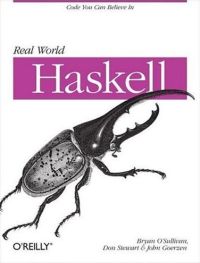 Real World Haskell by Bryan O'Sullivan, Don Stewart, and John Goerzen
Real World Haskell by Bryan O'Sullivan, Don Stewart, and John Goerzen
There is an online version of it. Some related papers to read and other material will be provided with the lectures.
Extra reading material
These books are all good but presented in order of decreasing relevance for the AFP course.
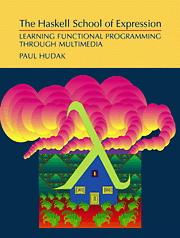 The Haskell School of Expression by Paul Hudak
The Haskell School of Expression by Paul Hudak
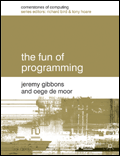 The Fun of Programming edited by Jeremy Gibbons and Oege de Moor
The Fun of Programming edited by Jeremy Gibbons and Oege de Moor
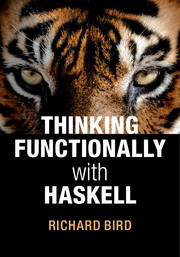 Thinking Functionally with Haskell by Richard Bird
Thinking Functionally with Haskell by Richard Bird
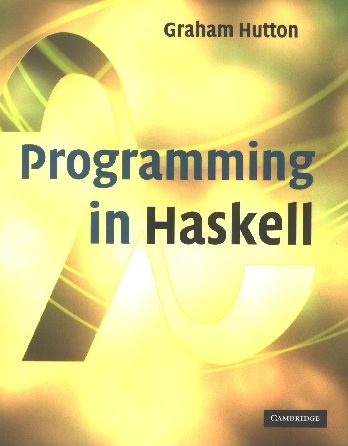 Programming in Haskell by Graham Hutton
Programming in Haskell by Graham Hutton
 Haskell — The Craft of Functional Programming
Haskell — The Craft of Functional Programming
Course design
Lectures
There are two 1.5-hour lectures every week. The students are expected to do a lot of independent programming and self-study. Lots of help is provided.
Assignments
There are three programming assignments, which you should do in pairs. If you have a good reason for doing the assignments by yourself, please contact the lecturer.
- You need to pass all three assignments and the exam in order to pass the course.
- Each of the assignments is divided into two parts with separate deadlines.
Deadlines
Examination form
Assignments
Laborations are graded with 3,4, and 5. Once you finish all the labs, you will get the following temporary grade:
tmp = (3*grade lab 1 + 5*grade lab 2 + 4*grade lab 3)/12Above, the 3,5, and 4 coefficients are the weights of the labs based on their difficulty.
To fix some round errors, the final score of the lab is:
grade_labs = (tmp - 3) * 1,4999 + 2.5Exam
The exam is graded as 3,4, and 5.
Final grade
To obtain the final grade, you need to pass all the assignments and the exam. The final grade for the course is composed of 60% for the lab's score and 40% for the exam's score.
total_grade = 0.6 * grade_labs + 0.4 * grade_examWhere the total_grade then gets rounded generously, meaning, 4.5 -> 5.
If you are a Chalmers student, then you get the score total_grade as the grade for the whole course.
GU students get G if total_grade is 3 or 4 and VG if it is 5.
Learning objectives and syllabus
Learning outcomes
- Design embedded domain specific languages (EDSLs)
- Explain and exemplify (abstract) syntax, semantics
- Implement EDSLs in Haskell (as combinator libraries)
- Read, understand and extend Haskell programs which use advanced type system features
- Type classes
- (Generalized) algebraic datatypes
- Functors, monads and monad transformers
- Use specification based development techniques
- Formulate and test properties about the program
- Reason about correctness of functional programs
- Transform programs on the basis of such reasoning
- Explain and discuss the above topics
Detailed course syllabus
Changes made since the last occasion
- Move lecture of Functors and Applicative Functors before the ones about Monads
Course Summary:
| Date | Details | Due |
|---|---|---|